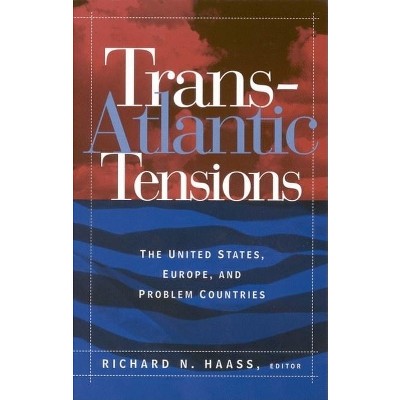Sponsored

Hyperlocal - by Jennifer S Vey & Nate Storring (Paperback)
In Stock
Sponsored
About this item
Highlights
- The chapters in Hyperlocal explore both the tensions and benefits associated with governing places in an increasingly fragmented--and inequitable--economic landscape.
- About the Author: Jennifer S. Vey is a senior fellow with the Brookings Institution Metropolitan Policy Program and the director of the Anne T. and Robert M. Bass Center for Transformative Placemaking.
- 284 Pages
- Political Science, Public Affairs & Administration
Description
About the Book
The chapters in Hyperlocal explore both the tensions and benefits associated with governing places in an increasingly fragmented-and inequitable-economic landscape. Together they explore the potential of place governance to give stakeholders a structure through which to share ...Book Synopsis
The chapters in Hyperlocal explore both the tensions and benefits associated with governing places in an increasingly fragmented--and inequitable--economic landscape. Together they explore the potential of place governance to give stakeholders a structure through which to share ideas, voice concerns, advocate for investments, and co-design strategies with others both inside and outside their place. They also discuss how place governance can serve the interests of some stakeholders over others, in turn exacerbating wealth-based inequities within and across communities. Finally, they highlight innovative financing, organizing, and ownership models for creating and sustaining more effective and inclusive place governance structures.
Review Quotes
Hyperlocal is a thoughtful examination of placemaking that asks the critical questions of accountability and who benefits from these investments. Grounded in equity and the communities we serve, this book is essential reading for anyone engaged in designing and managing public spaces.
Hyperlocal represents a constructive bridge over the wide gap between the theory and practice of place management. As local communities across the country seek to assemble the necessary tools to advance inclusive and equitable development, Hyperlocal will be a must-read for those leaders who are in the business of attracting investment in the service of place-based outcomes.
Hyperlocal shows us that hope is not lost. Communities can be governed to ensure the best for all of us.
Jennifer Vey and Nate Storring have put together a fascinating book full of illuminating case studies that unravel the dizzying variety of forms through which places are not only created but operated and maintained in America's cities. Showing how we have moved from government to place governance, this book highlights the promise of new and emerging hybrid models of both development and stewardship, but also points out the risks and pitfalls that go along with the opportunities. This is a valuable book for anyone who wants to understand how placemaking actually works in today's world.
With so much attention paid to 'what' gets built in cities, we need more resources on the 'how'. Hyperlocal is an essential and timely contribution to writing on cities to support practitioners to share power more effectively, be intentional about governance, and most importantly, work in solidarity with communities to create cities that serve the needs of everyone.
About the Author
Jennifer S. Vey is a senior fellow with the Brookings Institution Metropolitan Policy Program and the director of the Anne T. and Robert M. Bass Center for Transformative Placemaking. Vey's work primarily focuses on how place-based policies and practices can support the development of more vibrant, connected, and inclusive communities.
Nate Storring is the co-executive director of Project for Public Spaces. Storring's writing and projects explore participatory approaches to urban planning, policy design, and stewardship.










